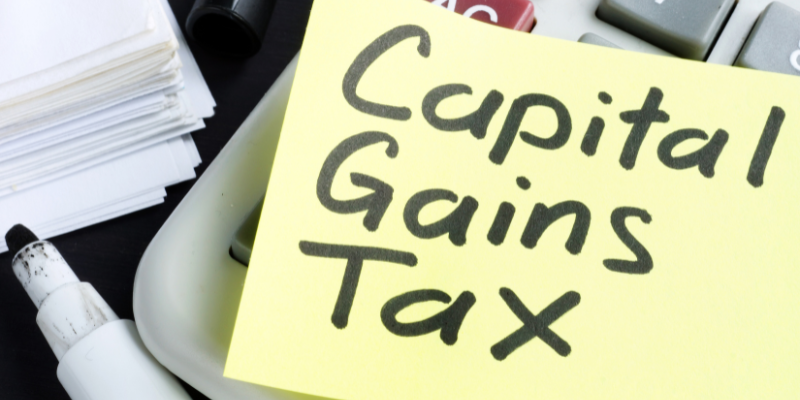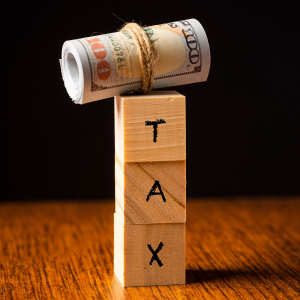
After selling a house in Chino, CA, you need to know a lot about both federal and state regulations in order to grasp the difficult capital gains tax procedures. If you own a home and sell it for a profit, you should know about the various tax effects that could have a huge impact on how much money you make. This tutorial is made just for those who reside in Chino and gives you crucial information regarding capital gains tax, such as exemptions and how to decrease your liability. Following the regulations and getting the best tax outcomes possible will help your real estate deals pay off in the long run.
Understanding Capital Gains Tax in Chino, California, Real Estate
It’s important to know everything there is to know about the capital gains tax if you own a home in California, especially when you sell it. When it comes to paying capital gains, the state of California and the federal government have different laws. These rules can have a huge impact on your money. People who own homes in Chino and other places need to know the distinction between federal and state taxes, what a capital gain is, and how taxes are calculated. Read this guide to find out how these taxes affect the selling of your house and what makes them distinct in California real estate.
What Are Capital Gains and How Are They Taxed?
The money you make when you sell a house for more than you paid for it is called a capital gain. When it comes to California real estate, knowing how these gains are charged is very important for figuring out how much you owe. The difference between the price you paid for the property and the price you got for it after making changes is subject to capital gains tax. In California, capital gains are counted as normal income, which makes things more complicated than they are at the federal level.

The IRS lets homeowners not pay capital gains taxes on their main homes up to a certain amount: $250,000 for single filers and $500,000 for married couples filing jointly. There are some conditions, though. The home must have been your main home for at least two of the last five years before you sold it. The federal capital gain rules are very strict. They say that short-term gains from properties owned for less than a year are not eligible for these benefits. This means that you have to pay taxes on these gains at your standard income tax rates.
The complicated gains tax in California is largely set by rules that are unique to that state. California taxes capital gains the same way it taxes other income, with rates that are the same as the state’s income tax brackets. For high workers, the rates can go as high as 13.3 percent. There is no set rate for capital gains tax. Instead, gains are added straight to your state income tax, which changes how much tax you owe overall.
How federal and state taxes work together is very important. A lot of the time, the federal tax return affects how much California gains tax you have to pay. The IRS gives the state rules it uses to figure out gains. Because of this, some taxpayers may not realize how much they owe if they only look at government rules. It’s very important for sellers to carefully plan their finances, especially in places like Chino that are very competitive. Talking to tax experts can save you a lot of money and make sure your taxes are filed correctly.
| Aspect | Federal Guidelines | California Specifics | Impact on Homeowners |
|---|---|---|---|
| Tax Rates | 0%, 15%, or 20% based on income bracket | California income tax rates apply (1% to 13.3%) | Federal rates may be lower than California’s, affecting overall tax liability |
| Primary Residence Exclusion | Up to $250,000 ($500,000 for joint filers) | Conforms to federal exclusion guidelines | Homeowners can exempt significant gains if criteria are met |
| Integration of Gains | Gains added to taxable income for the year | Treated as capital gains, taxed at applicable state rates | Can push homeowners into higher tax brackets, impacting total taxes owed |
| Duration of Ownership Requirements | Must own and live in the home for at least 2 of the last 5 years | Conforms to federal ownership and use tests | Compliance allows for maximum exclusion benefits |
This table contrasts federal and California capital gains tax treatments, highlighting essential considerations for homeowners navigating these tax structures.
Federal Capital vs. California Capital Gains Tax
There is a big difference between the federal capital gains tax and the California capital gains tax when it comes to selling a house. The federal capital gains tax is based on different tax rates than the income tax. Short-term capital gains are taxed at higher rates than long-term capital gains. Long-term capital gains come from buildings that have been owned for more than one year. Rates range from 0% to 20%, based on how much money the seller makes that is taxed.
California, on the other hand, taxes capital gains differently than the federal government does; they are completely included in the income tax system. In the federal system, long-term capital gains are taxed at certain rates. In California, however, these gains are treated as regular income. This method could lead to much higher taxes, especially for people in higher tax brackets, which includes a lot of people who own homes in wealthy areas like Chino. The way Californians deal with real estate deals has changed because of this strategy.
The federal Alternative Minimum Tax (AMT) can make things even more difficult when it comes to taxes. Its purpose is to make sure that people with a lot of money pay at least some tax, but it can apply when capital gains make a person’s total income go up. The way California taxes income is also similar to its state alternative minimum tax (AMT), which makes sure that high-income workers are taxed the same way when it comes to capital gains. It’s important for Chino homeowners to understand how things work, whether it’s the AMT or the different bracket structure.
Also, new tax legislation, like the Tax Cuts and Jobs Act, has changed how gains are figured and what can be left out. Because of this, homeowners need to stay up to date with developments at the state and federal levels. Because of these things, people in California who are selling their homes should think about how the taxes will affect them in the long run. If you work with a tax specialist, it could be easier to grasp capital gains and earn the most money for your house. How much of your capital gain becomes profit after taxes will rely on how successfully you deal with these discrepancies.
Ready to sell your Chino home? Knowing how capital gains tax works can help you maximize your earnings. Casey Buys Houses can help you sell quickly for cash and keep more of your profit.
Calculating Capital Gains on a Property Sale in Chino, CA
You need to know how to figure out your capital gains and how they are taxed when you sell a residence in California. This means you need to know the difference between short-term and long-term capital gains, as well as what occurs when you acquire a house and how a step-up basis can aid you. To calculate our taxes accurately and generate as much money as possible, you need to know these things. People in Chino can make a lot more money when they sell their home if they know these things. Buyers can keep better track of their money by figuring out these complex problems.
Short-term Capital vs. Long-term Capital Gains
Anyone who is selling a house needs to know the difference between short-term and long-term cash gains. If you sell a house within a year of buying it, you have short-term capital gains. These are treated at the seller’s regular income tax rates. This means that they are added to the seller’s other income, which could put them in a higher tax rate and make their total tax bill higher.

Long-term capital gains, on the other hand, are taxed more favorably. For homes that have been owned for more than a year, the gains from sales are taxed at lower rates, which range from 0% to 15% to 20%, depending on the seller’s income. With these lower rates for long-term capital gains, you can save a lot of money on taxes.
This difference is especially helpful because California already has a high state income tax rate. When possible, sellers should try to time their sales so that they can get long-term capital returns. To get the most out of these tax breaks, the planning could include keeping a home for longer or selling it at just the right time. When selling a home in Chino, where values have gone up a lot, sellers can use these savings to make more money.
Sellers can use a reliable capital gains tax calculator to figure out how much tax they could have to pay in the short and long term. This helps them make sensible decisions about how to sell. These disparities also affect federal taxes. For example, the Alternative Minimum Tax (AMT) might affect persons who make a lot of money. It makes sure that persons with a lot of tax benefits or high earnings nevertheless pay at least some taxes.
People in California need to know how the AMT affects the assessments that the state and the federal government make. Short-term capital gains are important because they increase your overall taxable income, which could cause AMT and make it tougher to plan your taxes. It’s important to know these things and plan for when you need to withhold tax so that you can pay the least amount of taxes and make the most money after taxes.
The Step-up Basis in Inherited Properties
People who inherit property have specific tax incentives, largely because of the step-up basis rule, which can change how capital gains are figured out. When someone buys a house, the tax basis of that house normally goes up to the fair market value at the time of the prior owner’s death.
This means that if the inheritor decides to sell the house, the capital gains will be figured out using this new, higher standard instead of the price the deceased paid for it. Because of this, the capital gain from selling the land is usually very small, which means less tax is due. This system protects the heirs from having to pay a lot of taxes on any possible gain that occurred while the original owner was living there.
The step-up basis is quite helpful for homeowners in California because prices for homes there tend to go up a lot. It lowers the amount of gain that is taxed, which could mean fewer capital gains taxes at the state and federal levels. However, beneficiaries still need to think about all the expenditures associated with the property, such as the cost of selling it or any modifications made after the inheritance, to get an accurate picture of its taxable gains. You may use a good calculator to assist you in figuring out how much tax you could have to pay and keep your profit projections in control.
This tax break is also beneficial for wise estate planning, as it helps preserve wealth for future generations and reduces debt. It’s crucial to know how to use these tools to ensure you get the right profit projections in regions like Chino, where housing values have increased significantly.
Sellers should also consider the federal estate tax rules and how they can impact their overall finances. Because real estate remains a significant component of California estates, sellers should consult tax specialists who can help them understand the complex inheritance regulations, apply withholding methods effectively, and ensure compliance with both federal and California laws.
This smart handling of selling a house to a family member not only pulls the most money out of them, but it also helps family members manage their finances for the future.
Planning to sell your house in Chino? Understanding capital gains can help you keep more of your profit. For a fast, fair cash offer and expert guidance, contact Casey Buys Houses.
Tax Implications of Selling Your Home in Chino, CA
There are a few tax issues to think about when you sell your Chino, CA home that can have a big effect on your finances. Because homes in California are so expensive, it’s important to know how local taxes will affect your situation. You will need to plan for real estate taxes, which are different from federal rules, and know how they affect the sale of a house. This guide tells you how to get ready for real estate taxes and makes sure you know about the California property sales tax deductions, exemptions, and responsibilities. Learn more about the complicated rules of estate taxation to make it easier to deal with the money issues that come up when you buy or sell property in California.
Ways to Prepare for Real Estate Taxes
Because California’s tax system is so complicated, getting ready for real estate taxes when selling a house in Chino takes some planning. Real estate taxes can have a big effect on the money you get from selling your home, which is why you need to plan carefully.
First, learn what the cost base is and how it works. This is important for figuring out your taxable gains. The original purchase price plus costs like renovations can be subtracted from the cost base to lower taxable gains. Make sure you keep accurate records of all the costs and improvements linked to the sale of your property. This will help you when you report the financial results of the sale.
In addition, federal tax exemptions have a big impact on how you pay your taxes. People who are selling their main home can exclude up to $250,000 of the home’s sale price gain, while married couples filing jointly can exclude $500,000. However, you can only use this exception if you have owned and stayed in the home for at least two of the five years before the sale.
These federal rules go along with California’s tax rules, since California doesn’t have a separate rate for capital gains. Instead, it counts these gains as part of your normal income tax. So, making sure your sale plan is in line with government exclusions can help you save money on taxes and lower the amount of debt that comes from selling your home.
It’s very helpful to consult tax specialists as part of getting ready. They tell you how to make the most of potential tax benefits, comprehend income tax problems, and plan your sales to take advantage of excellent tax years. These experts can also assist you in dealing with California’s high taxes by uncovering credits or modifications that could lessen the amount of money you have to pay in taxes.
If you plan ahead and get professional help, you can accurately predict your tax obligations and put plans in place to minimize them. This will make your real estate deal go more smoothly and benefit you more.
Estate Taxes and Their Impact on Home Sales
Selling a house in California is made even more difficult by estate taxes, especially in Chino, where home prices keep going up. It’s important to understand estate taxes because they can have a big effect on how much money you make when you sell your home. These taxes usually apply to property transfers that happen after the owner dies. This can change how heirs manage and finally sell properties they inherited.
California also doesn’t have its own estate tax. But federal estate taxes could have an effect on big assets. People who wish to learn how sales work and protect their money need to plan properly for estate taxes.

The stepped-up basis is a key idea in estate taxes that affects how capital gains are calculated. The property’s tax base is changed to its market value at the time of the original owner’s death when it is inherited. When the heir sells the land later, this change often lowers the taxable capital gain. By handling this stepped-up basis strategically, you can lower the taxable part of the gain and get the most money out of it.
To correctly figure out your tax obligations, you still need to know about any changes or costs that were made before the sale. To figure out the bigger tax effects, you need to know the federal laws that govern estate preservation. Current tax rules and future changes to the law can affect how estate taxes are calculated, which can affect choices about whether to sell a property.
As more baby boomers get ready to pass on their wealth, it’s important to know how these rules are changing. Hiring professionals to help with estate planning makes sure that you follow all tax laws. They help people take advantage of provisions and use estate planning tools to protect their assets.
Also, it’s helpful to know how estate taxes might change the way the California real estate market works. As a state with expensive real estate markets, Chino buyers should be ready for how taxes affect the market as a whole. By understanding these factors, you can make smart choices about when to sell your home to get the most money.
You may decrease your taxes, safeguard the value of your estate, and make sure that all of your property transactions are in line with your goals and plans if you plan carefully and get help from an expert. In the end, these measures not only protect people’s money but also make it easier to sell a house, which helps people keep their money.
Understanding real estate taxes is key to keeping more of your profit. If you’re ready to sell fast for cash and avoid hidden costs, investor home buyers in Chino and other cities in California.
Frequently Asked Questions About Tax and Selling Property in Chino, California
It can be challenging to understand how taxes and selling property work in California. This section covers some of the most common questions individuals have regarding what homeowners should expect when it comes to taxes, sales earnings, and financial laws that are dependent on their property. These common questions cover crucial themes for people in Chino and all around California who want to know how the regulations for capital gains at the federal and state levels operate together and what they may anticipate. This is a full guide on how rules, exclusions, and profit estimates that are different in each state affect the selling of a home.
What to Expect When Selling in California
If you want to sell a house in California, especially in Chino, you need to know about a few tax issues that could have a big effect on your net profit. California is one of a kind because it taxes capital gains the same way it taxes other income, which changes your total tax rate. When you sell a house and make a profit, you have capital gains. To figure out your capital gains, take the sale price and remove the cost basis, which is the purchase price plus any improvements. If you know that California counts these gains as regular income, you may need to change how you sell your things, because the state’s high income tax rates could eat up a big chunk of your profit when you add it to your earnings. To keep taxable gains to a minimum, sellers must carefully keep track of all deductible costs, such as home changes and selling costs. This can successfully lower tax obligations, which makes keeping accurate financial records a very important habit.
The state’s tax rules are similar to federal rules in many ways, but there are some differences. For example, the federal government lets people avoid paying taxes on home sale profits of up to $250,000 for individuals or $500,000 for couples whose main home is their home. California, on the other hand, does not give a similar capital gains rate cut. As a result, these gains are immediately used to figure out the state tax. Choosing to sell your home during a lower-income year can also help lower your tax load, since California’s multiple tax brackets could otherwise make your tax bills go up. You can plan ahead for these responsibilities and make the most of your preparations by using a good capital gains tax calculator. This will help you stay on track with your financial planning.
The withholding tax rules are another important thing to think about. When someone sells a house in California, the buyer usually has to hold back some of the money from the sale to pay the seller’s state taxes ahead of time, unless the deal is free from this requirement. It’s important to understand this clause because the withholding can affect cash flow and profits from finishing deals, so sellers need to be ready for these possibilities ahead of time. The right advice from tax experts can help sellers find relevant exemptions and make sure they don’t run into unexpected financial problems. Homeowners in Chino and beyond can make sure their deals are in line with both state and federal laws by working with professionals. This will protect their income and make sure they follow all the rules.
Due to the way state and federal tax returns work together, sellers should also be aware of how changes to their federal taxable income can affect their total tax situation. The Alternative Minimum Tax (AMT) makes sure that people with high incomes pay a minimum amount of taxes every year. This could change how their taxes are calculated when they get capital gains. So, people who are getting ready to sell their homes need to carefully plan how they will handle the taxes they will have to pay. Some things that can help you plan your taxes better are taking advantage of IRS exemptions, planning sales to take advantage of long-term gain rates, and keeping accurate records of repair costs so that you can deduct them. Because these deals are so complicated, it’s important to plan ahead and be ready to talk to finance experts who can help sellers find their way through the tax maze.
It can be challenging to figure out the capital gains tax after selling a house in Chino, CA, but knowing the exclusions and limits that California tax law gives you can make a major difference in your finances. It’s vital to be proactive about your tax plan, whether you’re using the main residence exception or writing off certain charges. Getting advice from a tax professional might help you figure out the best way to conduct things so that you follow the regulations and maybe even pay less in taxes. If you stay attentive and ready during the home sale process, you can make smarter financial choices.
Navigating taxes when selling your home in Chino can be complicated, but selling doesn’t have to be for a smooth, all-cash sale with no hidden fees. A company that buys homes in San Bernardino and nearby cities in California. Ready to sell or have questions? Call us at (909) 455-9496 for a no-obligation offer. Get started today!
FAQs:
What is a capital gain in the context of selling a house in Chino, CA?
A capital gain is the money you get when you sell a house for more than you paid for it. In California, capital gains are taxed like regular income, which can change how much you owe in taxes.
Are there any federal exclusions on capital gains tax when selling a primary residence?
Yes, the IRS does allow exemptions for sales of your main residence. For single filers, the amount is up to $250,000, and for married couples filing jointly, it is up to $500,000. The property had to have been your primary residence for at least two of the last five years before the sale.
How does California tax capital gains from property sales?
If you make a lot of money in California, your capital gains are taxed at the state level, which can be as high as 13.3% for high earners. At the state level, there is no set amount for capital gains tax.
What should I consider when planning to reduce my capital gains tax liability?
It’s important to keep track of home upgrades and related costs because they can be used to lower taxable gains. Talking to tax experts can also help you get the most out of deductions and plan your sales carefully.
What is the ‘step-up basis’ and how does it affect inherited property sales?
The step-up basis changes the property’s tax basis to its market value at the time of transfer. This can greatly lower the amount of capital gains tax that needs to be paid when the property is sold.
Helpful Chino Blog Articles
✓ Selling a House in a Trust After Death in Chino, California
✓ How To Successfully Sell Your Chino, California, House ‘As-Is’ Without An Inspection
✓ Cost Of Asbestos Removal For Homes In Chino, CA
✓ Can The Executor Change A Real Estate Will In Chino, CA?
✓ How to Sell a House with Title Issues in Chino, CA
✓ Selling Shares of Your Home in Chino, CA
✓ Capital Gains Tax After Selling a House in Chino, CA
✓ How to Successfully Sell Your Investment Property in Chino, CA

